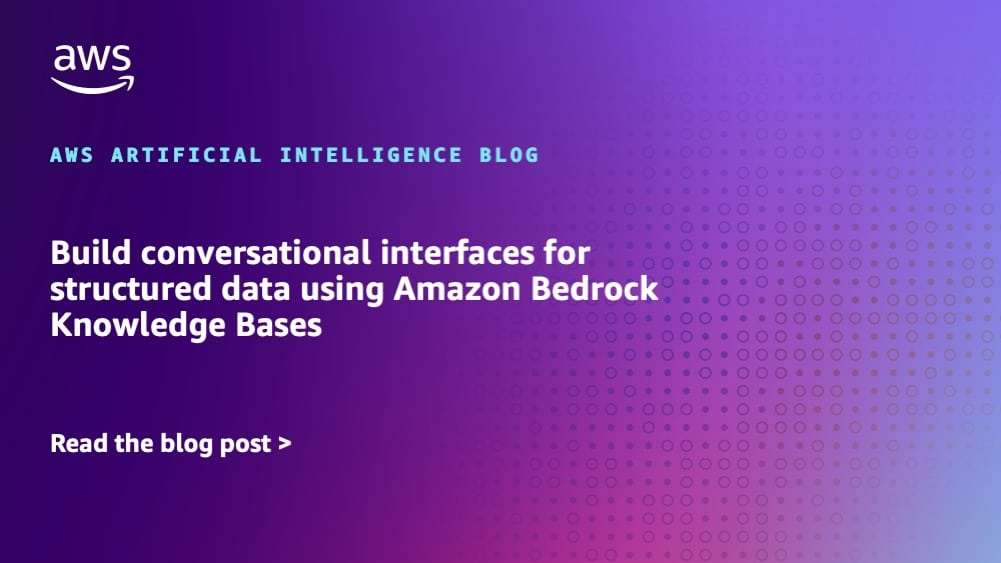Sure! Here’s the translation:
Organizations face the challenge of managing large volumes of structured data in databases and data warehouses, making the transformation of business questions into SQL queries a complicated process that creates bottlenecks in workflow. Large-scale language models have improved natural language processing, but it is still complex to translate conversational queries into structured data analysis.
In this context, Amazon Bedrock Knowledge Bases emerges as an innovative solution, allowing direct natural language interactions with structured data sources. This system can interpret database schemas and their context, converting everyday language questions into precise SQL queries while maintaining high standards of data reliability.
Users can easily interact with their structured data by configuring data ingestion from AWS Glue tables and Amazon Redshift clusters. This process is accessible and quick, enabling them to make the most of Amazon Bedrock Knowledge Bases’ data retrieval capabilities.
The proposed approach facilitates the building of conversational applications that integrate structured data retrieval. Developers often face hurdles when implementing structured data in generative artificial intelligence applications, including the labor-intensive task of training language models to convert natural language queries into SQL and ensuring proper governance and security management. Thanks to Amazon Bedrock Knowledge Bases, these complexities can be mitigated through a well-managed natural language to SQL (NL2SQL) translation module.
The integrated solution comprises Amazon Bedrock Knowledge Bases, Amazon Redshift, AWS Glue, and Amazon Simple Storage Service (S3). In terms of architecture, it includes a data ingestion pipeline and a retrieval application that supports Amazon Redshift as the query engine, providing various data ingestion options. The ingestion process setup is a single action compatible with different data access patterns.
Once ingestion is configured, users can pose their queries in natural language, and the system will automatically generate the corresponding SQL query, executing it in the query engine and processing it through a language model to present a comprehensible response.
Additionally, Amazon Bedrock Knowledge Bases offers three different APIs to meet data retrieval needs: response generation and retrieval, retrieval only, and SQL query generation, thus providing great flexibility to users.
To implement this solution, it is necessary to have an AWS account and access to the required foundational models in Amazon Bedrock. The data ingestion setup phase involves uploading a dataset to an S3 bucket and configuring the AWS Glue tables along with a Amazon Redshift workgroup as the query engine.
In summary, Amazon Bedrock Knowledge Bases significantly simplifies data analysis by transforming natural language questions into effective SQL queries. This enables analysts and teams to work more accessibly and securely in data-driven environments, thereby accelerating decision-making processes.
Source: MiMub in Spanish
